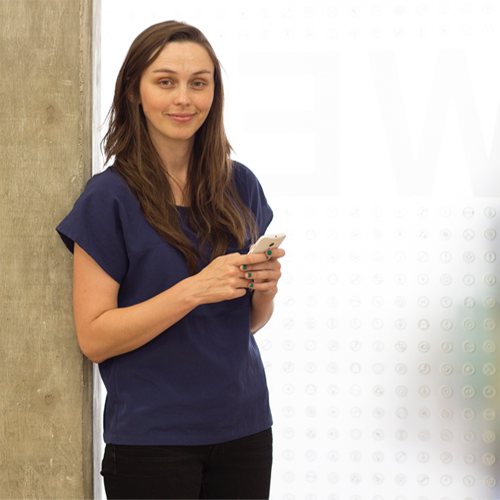In February, Assistant Professor Amelia Acker was awarded a research travel award as part of an initiative coordinated by the Software Preservation Network (SPN) to foster practice-based community around software preservation. The project titled, “Fostering a Community of Practice: Software Preservation and Emulation Experts in Libraries and Archives (FCoP),” involves establishing a community of practice in software preservation and emulation within libraries, archives and museums.

Supported by the Institute for Library and Museum Services [IMLS grant RE-95-17-0058-17], research using the FCoP Travel Award is expected to complement the efforts of the FCoP project and SPN more broadly, which seeks to bring software preservation into mainstream digital preservation practice (addressing specific legal, metadata and technical preservation and access challenges).
In selecting a candidate for the FCoP Research Travel Award, the FCoP team looked for proposed research that advances understanding of practice through the lens of one or more categories: Standards Development and Sociology of Standards; Information Infrastructure; Capacity Building and Economic Sustainability of Public Institutions; Cross-institutional and Cross-sector Alignment (Collective Impact); Information and Technology Policy; Legal Advocacy for Cultural Institutions; and Social Impact of Public/Private Partnerships.
Based on the goals of the FCoP project, SPN announced that Acker would receive the $5,000 travel award. “We are thrilled for Dr. Acker to join the FCoP Project team and we look forward to sharing more about the process and outcomes of her work with the FCoP project cohort!” they said.
The goal of the Research Travel Award is to fund travel to observe and document different organizational approaches to software preservation and emulation. The award will allow Acker to visit a number of current sites at libraries, archives, and museums to observe software preservation workflows, metadata development, and digital stewardship teams.
“I am excited to be joining the FCoP project team as the recipient of the research travel award!” said Acker. “As part of this generous support from IMLS and the Software Preservation Network, I’ll be able to continue my research on the complex, changing, and contested roles of digital preservation in society.”
Acker expects to start working on this project over the summer. Over the next two years, Acker will visit current FCoP project sites to observe how software preservation practices are applied in different stewardship contexts and cultural heritage organizations. “Georgia Tech’s retroTech Lab, University of Virginia Libraries, Guggenheim Museum, and the Living Computers Museum + Labs are a few of the places where I will do fieldwork,” she said. Acker plans to interview team members and research how administration and technical workflows, preservation standards, and metadata documentation are developed and deployed across different work sites.
“We know that cultural heritage organizations are currently engaged in a variety of new and emerging software preservation services—from metadata workflows to emulation as a service. But what we don’t know is how the unique environs of a cultural heritage organization and the people that make up these teams impact the theories, workflows, and applications of software preservation and emulation in different ways” said Acker. “What can libraries, archives, museums, LIS researchers and educators learn from these different workplace contexts? How do values, ethos, and unique community traits manifest in different places and shape software preservation practices? I can’t wait to find out!”
The Social Preservation Network shares Acker’s fervor when it comes to answering these questions. “We look forward to the outcomes of Dr. Acker’s research,” they said.
To follow Acker’s work, or to read more about the research she will be conducting as a part of her FCoP Travel Award, visit the FCoP Research Field Reports page or her website.